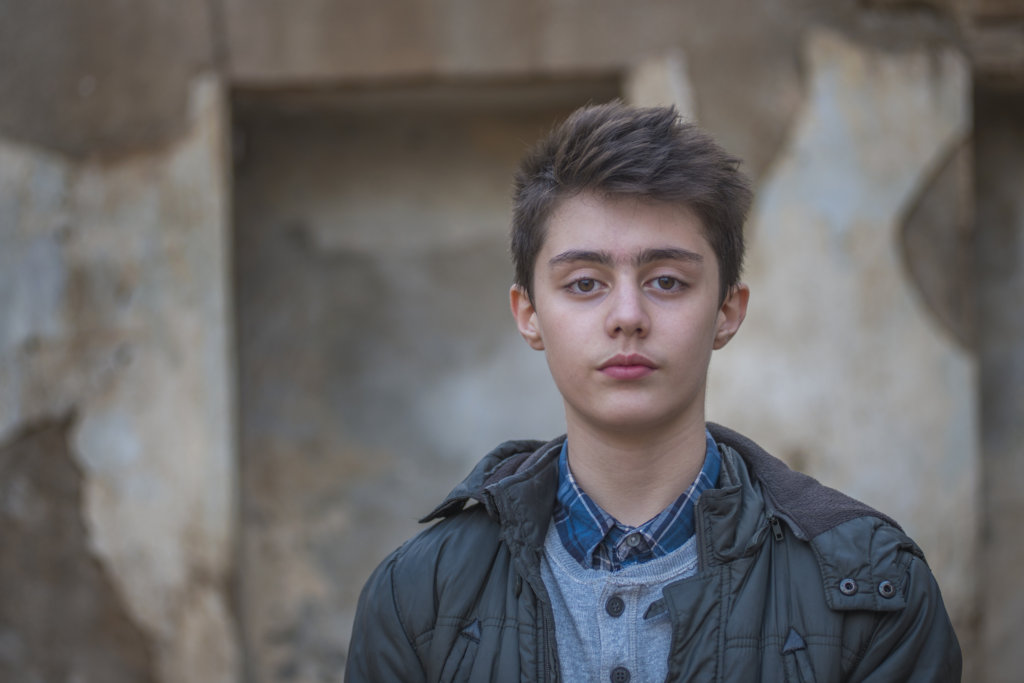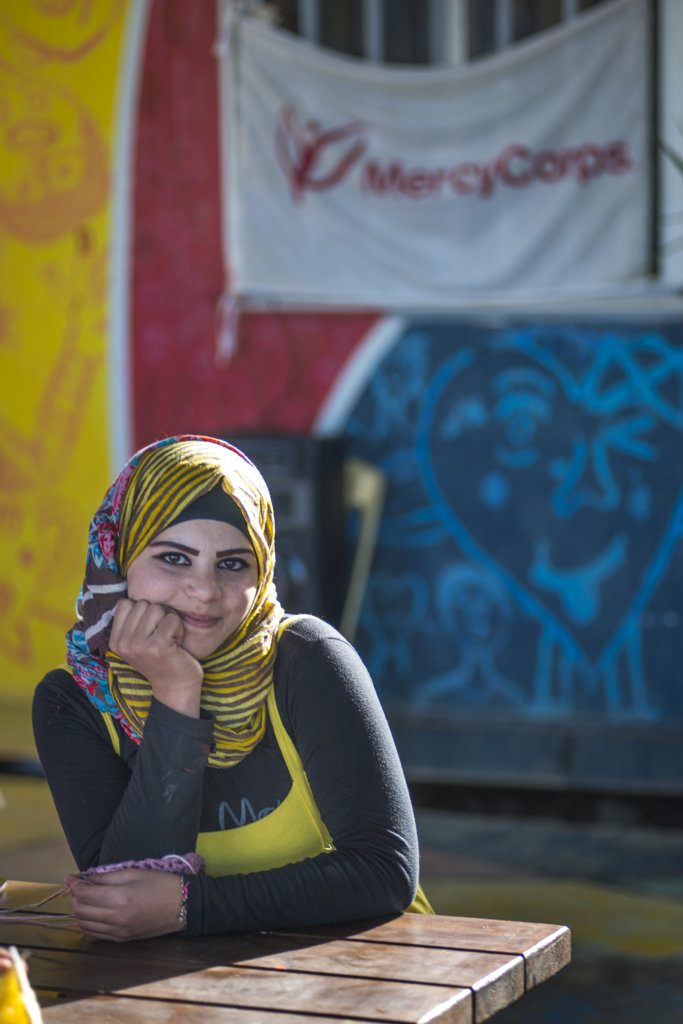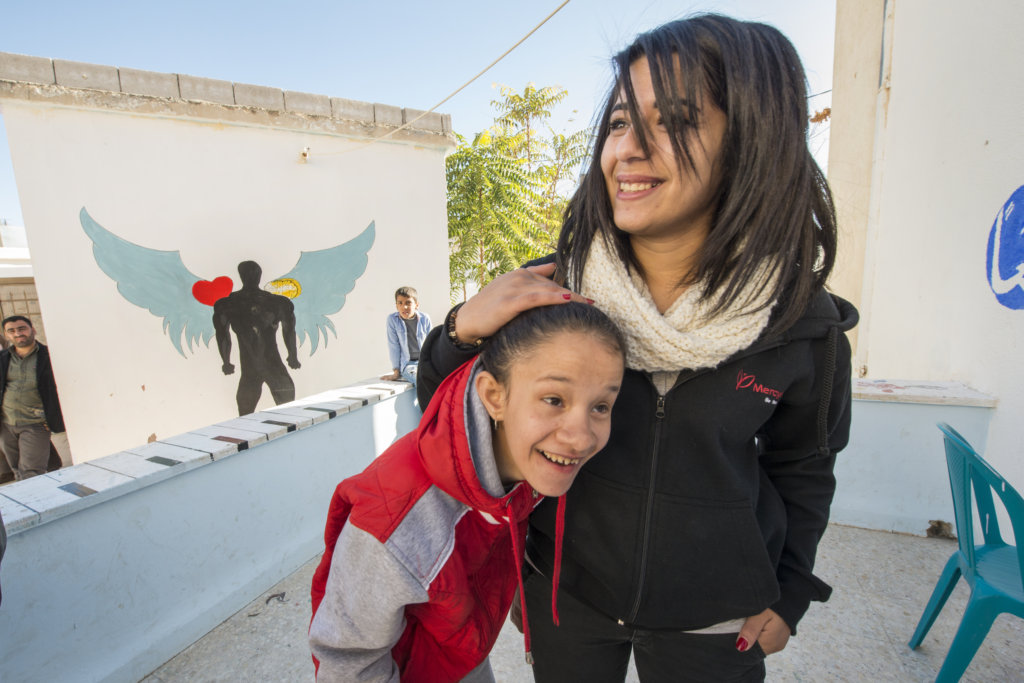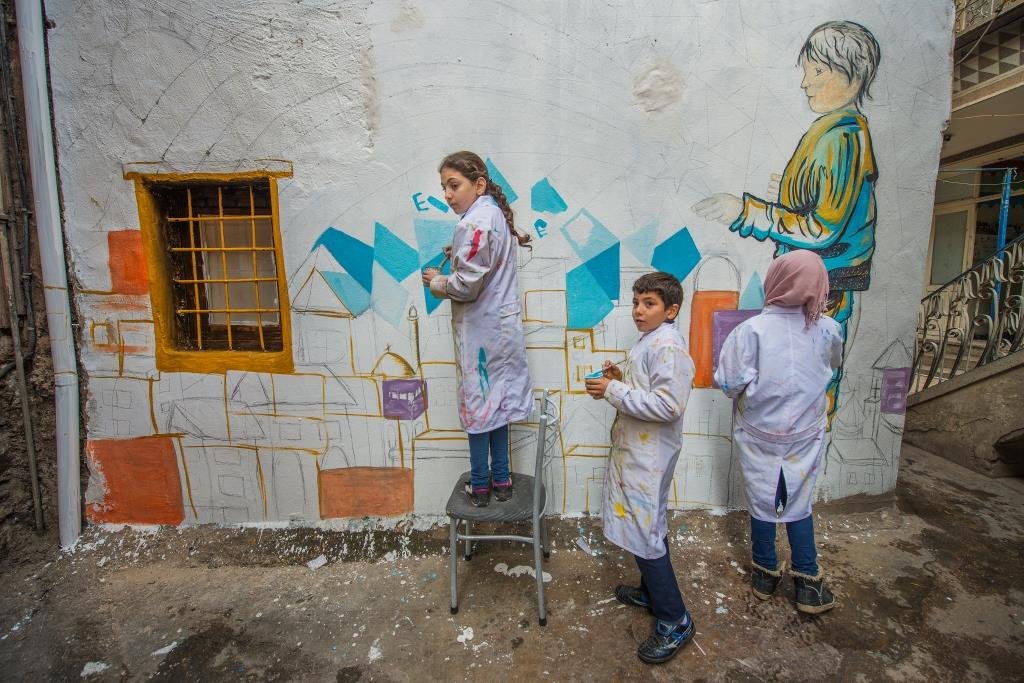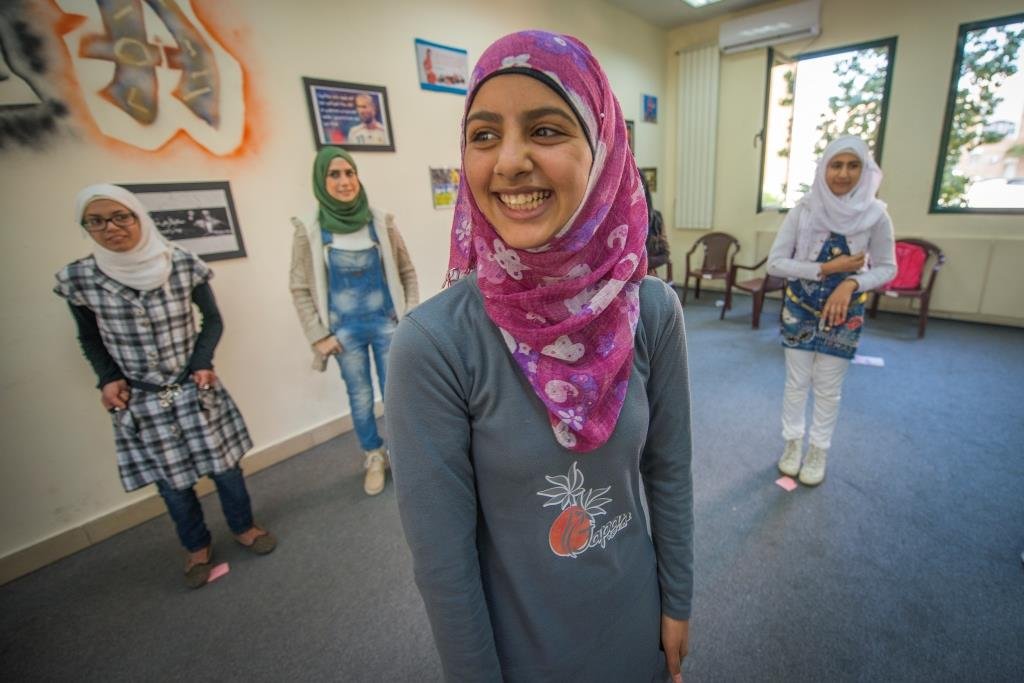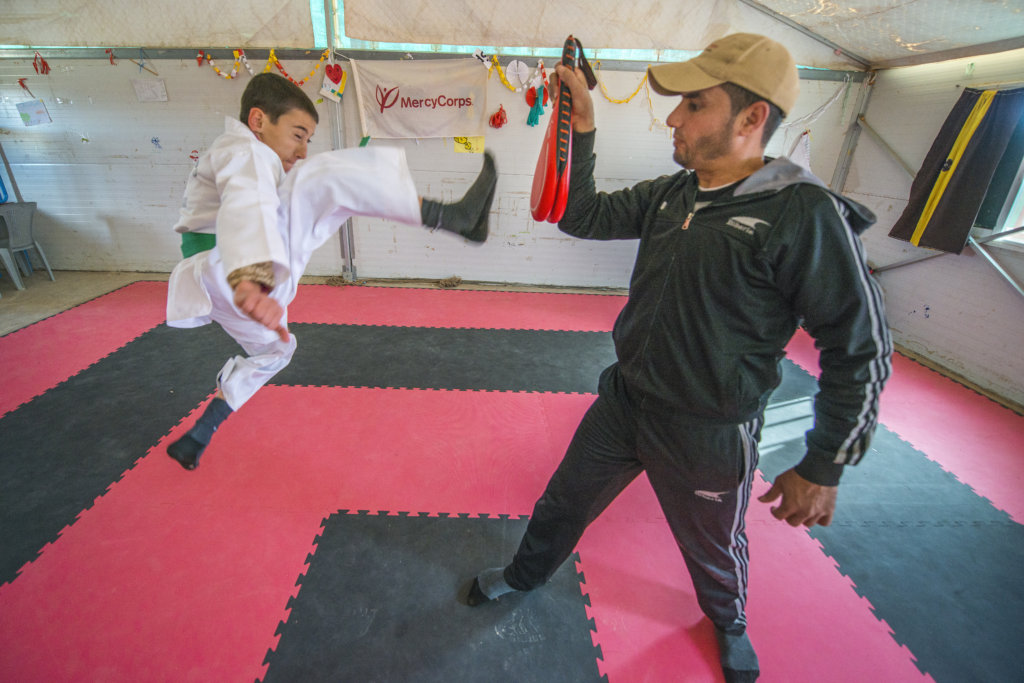By Danya Greenfield | Regional Policy & Advocacy Advisor, Syria Response
Mercy Corps joined other international organizations, world leaders and private sector copmanies for the first-ever World Humanitarian Summit to address a humanitarian system that is no longer capable of meeting exponentially growing needs in a world facing a confluence of displacement, crisis and fragility. Sami, a 15 year-old Syrian refugee, joined Mercy Corps to provide a first-hand account of his experience as a refugee. All photos: Peter Biro for Mercy Corps.
Sami was nervous at first, but his voice grew steady as he described how he fled his home in Aleppo to start a new life in Gaziantep, Turkey.
“We had to leave everything behind and say goodbye to the city we love,” he said. “At first, I wasn’t sad because I did not realize that we would not be returning, and I didn’t know how hard it would be. It was difficult for me to start a new life in this city – I missed my home, I often felt alone, and it was difficult to make new friends."
At 15, Sami was the youngest of five youth panelists who participated in a side event at the World Humanitarian Summit, “Empowering Youth Affected by the Syria Crisis,” co-organized by Mercy Corps, UNICEF, and other partners of the No Lost Generation initiative. The goal of the event was to give young people an opportunity to engage directly with the decision-makers who are creating programs to respond to the needs of Syrian refugee youth and adolescents.
The 200-person room was packed. In attendance were several high-level figures who joined the panel discussion to respond directly to concerns the youth expressed, including Anthony Lake, UNICEF executive director, Hikmet Eskan, CEO of Western Union, Baroness Verma, Undersecretary for DFID, and Bekir Gür, senior advisor to the Turkish Minister of Education.
Yet you could have heard a pin drop as we listened to their powerful stories. They spoke of violence and bullying in schools, early marriage, child labor, families being displaced and separated, and their enormous struggles to access education.
“I dropped out of school because I was bullied by kids who thought I didn’t belong in their school and beaten by teachers who thought this was the only way to teach us how to behave,” said Ahmed, 17, a Palestinian-Syrian refugee now living in Lebanon, and another member of the youth panel.
At the same time, their determination, empathy, talent and humor was uplifting and energizing – and highlighted the potential of this young generation to build a better future for themselves and their families.
Why focus on teens?
Adolescence is a critical stage of development. Living through trauma and upheaval during this time period has placed Syrian youth and adolescents at a crossroads.
Before the war, more than 70 percent of Syrian adolescents were enrolled in secondary school, and 95 percent of the country could read. With the Syria crisis now well into its sixth year, UNICEF estimates that half of Syrian children, roughly 2.6 million, are not accessing education opportunities across Syria and the region.
Read our report: Age of Unrest: Syrian Refugee Youth at the Crossroads
In a 2015 survey, more than half of Syrian refugee children in Turkey had witnessed someone get attacked or shot at; even more had experienced a death in the family. Almost half already showed symptoms of post-traumatic stress disorder.
This side event at the World Humanitarian Summit was organized as part of the No Lost Generation initiative, a combined effort of United Nations agencies, non-governmental organizations and international donors to ensure that the 4 million Syrian and other vulnerable children and youth in the region have the chance to learn, recover, and contribute to their communities.
It also was a chance to show youth not as the problem, but rather the solution; it demonstrated positive power of youth and the critical role young people play in enabling the countries where they live to thrive.
Tackling the trauma of the Syrian crisis
Mercy Corps programs are built to tap the positive power of youth. Through our adolescent programs in Turkey, Jordan, Iraq, and Lebanon, we are helping young people develop the skills and characteristics that will help them long into the future, such as empathy, critical thinking skills, the ability to set short- and long-term goals, as well as form healthy relationships and create community projects that promote non-violence.
Sami participated in Mercy Corps’ Smart Art program, which brings together Syrian and Turkish youth to design and create murals throughout the city of Gaziantep. The goal is to build social cohesion and reduce conflict between Syrian and Turkish youth through art projects.
Sami said the Smart Art program helped him feel motivated. Learn more about Sami
“Even though Syrian youth have faced a lot of challenges, we can do a lot to reach our goals,” he said. “Yes, we want to return to our country, but we also want to feel accepted in our community here.”
Ahmed, the Palestinian-Syrian refugee who dropped out of school in Lebanon, highlighted the need for informal education opportunities.
“When I signed up at Mercy Corps’ Bussma Center, I started classes in English and computers and car repair, and made a lot of friends. We stopped looking at our nationalities and started concentrating on our commonalities,” he said.
At the end, the audience left with a new understanding that young Syrians can be engines for growth and prosperity in the countries of their exile – and a promise of reconciliation and reconstruction when Syria finally sees peace.
As a global community, we must not only include adolescents in meaningful dialogue about their needs and aspirations, but also engage them as partners.
How you can help
Project reports on GlobalGiving are posted directly to globalgiving.org by Project Leaders as they are completed, generally every 3-4 months. To protect the integrity of these documents, GlobalGiving does not alter them; therefore you may find some language or formatting issues.
If you donate to this project or have donated to this project, you can receive an email when this project posts a report. You can also subscribe for reports without donating.
Support this important cause by creating a personalized fundraising page.
Start a Fundraiser